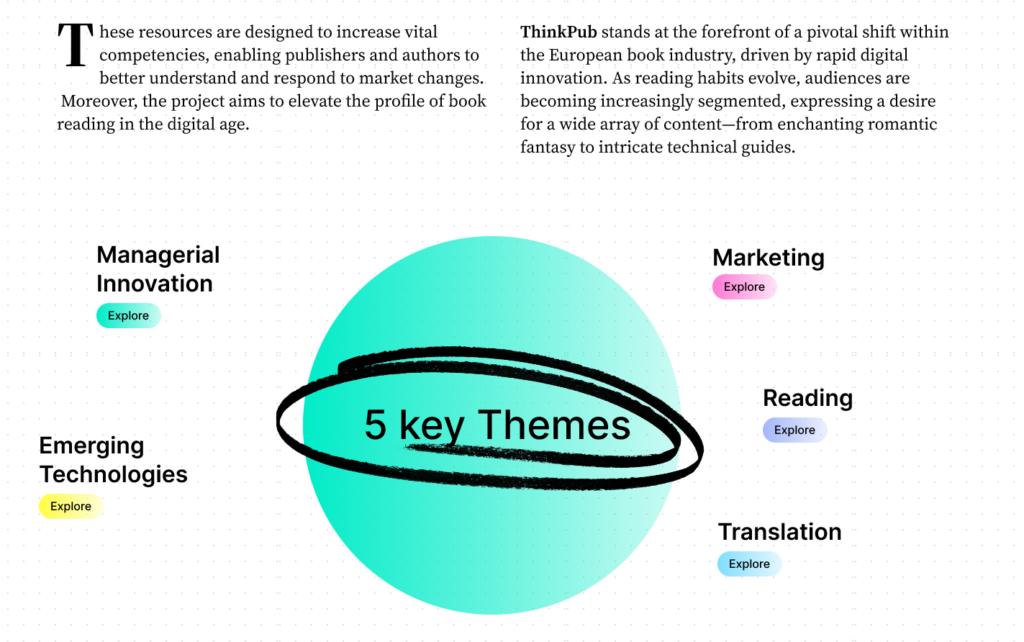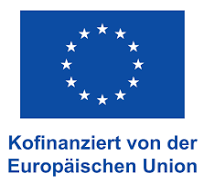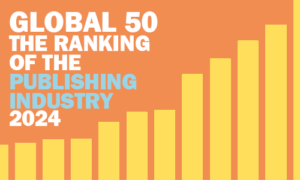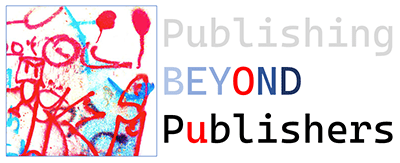Story Telling with AI
„Let’s tell one, two – no,
tell an infinite number of stories“
Full English version to follow soon!
Was geht in Sachen “Story Telling” mit gezielter Einbeziehung von KI (künstlicher Intelligenz)? Und was nicht.
Das haben Carlo Carrenho und ich Ende Januar bei der Future Publish Konferenz in Berlin ausgelotet unter dem Titel “KI Buch 360°: Der große Praxis-Test. Von der Story-Idee zur globalen Veröffentlichung – Buchproduktion neu erlebt.“
Unser Ziel war, ausgehend von einer klassischen Erzählung deren Geschichte in die Gegenwart zu transferieren, in unterschiedliche sprachliche wie auch kulturelle Kontexte zu transferieren, die Geschichte in unterschiedlichen Formaten zu präsentieren und jeweils zu all diesen Schritten genau zu beobachten was an diesen funktioniert, was nicht funktioniert – und welche neuen Fragestellungen sich ergeben.
Unsere klassische Vorlage war das “Hohelied der Liebe” aus dem Alten Testament der Bibel in der Übersetzung von Martin Luther.

Die Ergebnisse wollen wir auf unseren beiden Websites Zug um Zug veröffentlichen und zusätzlich auch den genauen Weg offenlegen, wie wir vorgegangen sind.
Die Berliner Präsentation von Carlo Carrenho finden Sie hier:
Meine Präsentation finden Sie hier.
Meine Idee war, 3 verschiedenen neu Versionen ausgehend von der Liebesgeschichte im “Hohelied der Lieb” mit Hilfe von ChatGPT zu erstellen, die allesamt heute spielen:
- Eine Basis-Version, in der einfach die Story in unsere Gegenwart transferiert wird;
- Eine zweite Fassung, die ganz konkret in einem mir gut bekannten Dorf an der österreichisch-tschechischen Grenze spielt, sowie
- Eine dritte Version, transformiert aus der Bernhardsthal Story, jedoch in der scheinbar so ganz anderen Umgebung eines kleinen Ortes am Amazonas.
Den neuen Titel erfand ich erst mitten im Arbeitsprozess. Er lautet
“Canticle. A Story of Love and Life.”
Und hier die Zusammenfassung der neuen Geschichte – gewissermaßen der Klappentext:
In “Canticle. A Story of Love and Life,” timeless themes of love, longing, and self-discovery are woven into a modern tale that echoes the lyrical intensity of the ancient Song of Songs. Set in a quiet town where every shadow hides a mystery, Judith and Jakob’s deeply human journey unfolds—marked by passion, doubt, and a haunting connection to the past. As their story intertwines with the poetic cadence of the biblical Canticle, the narrative explores the universal struggles of intimacy and identity. This evocative tale invites readers to reflect on the nature of love and the secrets we carry.
Doch zurück zum Start des Story Telling Experiments: Hier der erste Prompt, mit dem ich mein Story Telling mittels ChatGPT gestartet habe:
Prompt 01
Dieser Text ist eine sehr alte, literarische Liebesgeschichte: Eine Frau und ein Mann sind einander zutiefst zugetan, emotional wie auch erotisch und sexuell. Ich möchte daraus eine entsprechende literarische Geschichte entwickeln, die heute spielt.
In einem ersten Schritt sollst du die Nummerierung der einzelnen Zeilen löschen, die Nummerierung und die Struktur der Kapitel aber belassen.
In einem nächsten Schritt will ich eine richtige Geschichte aus dem Text entwickeln:
Die Frau heißt Judith, der Mann heißt Jakob.
Wir wollen den Ort und die Landschaft kennenlernen, in der die beiden leben und zueinander finden. Die dialogische Struktur soll bestehen bleiben, so dass die beiden auch weiterhin miteinander und übereinander sprechen. Die Geschichte soll heute spielen. Judith und Jakob sind zwei junge Erwachsene in einer kleinen Stadt.
Um der Sache etwas zusätzliche erzählerische Dynamik und Spannung zu verleihen, griff ich dann noch einmal ein – mit einem gut bewährten dramaturgischen Trick:
Prompt 02
So now I have a few suggestions for how our story should continue.
Switch to Judith’s perspective. In the following night, Judith has a dream, which is both disturbing and exciting her, emotionally and physically, with passages in the dream echoing the original old story – which I had uploaded here as a start for our story.
Judith lives through this dream several times in the following nights, in variations, and colored and peppered with many different details, including episodes of sexual pleasure as well as loaded with doubt and confusion, thereby expanding and exploring all her ambivalences about herself, and about her love to Jakob.
Und dann noch ein weiterer Kick mit
Prompt 03
Back to Judith now. We see her in her bookshop, in a little dull moment on a late week morning, when no customers are in the shop, and she can, aimlessly, browse books on her shelves, discovering a copy of a fine edition of the old, and original of the “Canticle. Song of Songs”! She starts reading in the book, and after just a few minutes, finding herself completely absorbed by its story, and even more by the high tone of that book – which, to her utter amazement, seems to tell her own story.
Die gesamte so entstandene Neufassung 01 finden Sie hier.
Als nächstes schien es nun wohl angebracht, auch noch über einen Autoren Namen für die Sache nachzudenken. Immerhin waren hier mit Carlo und mir 2 Urheber zugange, und alles sollte seine Ordnung haben.
I need your help for finding a pseudonym for the author.
This pseudonym – consisting of a first name and a surname – should be entirely neutral in the sense of offering no clues on the author’s identity, gender or cultural background, and it should be made of elements of these 2 names: Carlo Carrenho and Rüdiger Wischenbart.
Hier das Resultat:
Certainly! Crafting a pseudonym that is neutral yet derived from Carlo Carrenho and Rüdiger Wischenbart is an engaging challenge. Here are a few options that combine elements from both names while remaining entirely neutral:
- Caren Wieshart
- Rudi Carran
- Carson Wischel
- Renho Wischen
- Carris Wiger
- Caren Ruish
- Diger Carrenhart
- Rene Carrenbart
- Carlis Wisbart
- Wischer Carren
These pseudonyms aim to blend elements from both names seamlessly, creating a sense of anonymity while maintaining a professional and memorable sound. Let me know which of these resonates with you, or if you’d like further refinements!
Ich entschied mich letztlich für Vorschlag 7:
Diger Carrenhart
Nächste Station: Die Transformation unserer Geschichte in einen kleinen Ort im Nordosten von Österreich:
I need to return to this great story that the both of us have crafted. We should stick to the main plot lines as they are here, yet for a next move, I want to re-locate and re-frame – geographically and culturally – everything, to develop a new version.
As said, the main plot line and the personell – with Judith, Jakob and the stranger must be maintained. BUT the story should be relocated from Grünheim to Bernhardsthal, an even smaller village in the Northeast of Austria, in a region called Weinviertel. Bernhardsthal has just about 1500 inhabitants, with half of it not being born in the village, but coming from the outside. Of course, many come from the Austrian capital of Vienna, which is just an hour’s drive or train right in the Southwest. But others have their origins, for highly diverse reasons and personal histories, much further away, in Bosnia, in Russia, in England, in Columbia and in Chile in South America, or in South Africa. Also Bernhardsthal is sitting on the river Thaya with its lush, yet secretive wetlands full of birds and deer, and the village borders with Southern Moravia in the Czech Republic, a region rich in culture and wine growing. And also the Slovak border is nearby. So the story can be embedded in this complex context full of surprising impulses. As there is no bookstore in the village, Judith must have a different job. And Jakob also has different dreams.
Can you re-write our story accordingly, in German, and again at about 4000 to 6000 words long, organized once again nicely in short chapters?
Diese zweite Neu-Fassung des Hohelieds steht hier zum Download bereit.
Und schließlich der dritte Streich:
- Neue Region,
- neue Sprache,
- neuer Tonfall – und doch die alte vertraute Geschichte:
Hier der letzte Prompt:
And now I want to create a third version, once again with the same plot, again with Judith and Jakob, yet once again re-located into an entirely different geographical and cultural context. It will be set now at Leticia, the small town in Colombia in Latin America, on the Amazonas river, bordering to Brazil and Peru. The narration must dwell on the highly complex and rich cultural diversity and the differences between indigenous and Hispanic people plus the foreigners coming to tow as tourists, or smugglers, or developers or natural scientists Jakob should have an indigenous background and name, while Judith comes from Medellin. This version needs o be written in Colombian Spanish, with a tone that richly dwells on typical Colombian idiomatic expressions and even Colombian Slang. And again, please develop the story to about 4000 to 5000 words.
Die kolumbianische Version in exotischer Pracht nachzulesen hier.
Und kein Wunder, dass wir – die Maschine, Diger Carrenhart und ich – längst gute Freunde geworden waren:
¡Avísame si necesitas ajustes! 😊
Du:
Brilliant. Thanks you! so much for today. We will continue our journey soon!
ChatGPT:
De nada, fue un verdadero placer ayudarte a dar vida a esta historia. ¡Espero con ansias nuestra próxima colaboración! Hasta pronto y mucha inspiración para lo que viene. 😊🌟
Übrigens, unseren Spaß an der Geschichte wollen unsere Posts hier ebenfalls vermitteln. Denn auch am Ende unseres Workshops in Berlin haben wir alle – Vortragende wie Publikum – herzlich gelacht über ein so naheliegendes wie auch überraschendes Experiment.
Das lag natürlich auch an einer “KI Polka“, die wir ausborgen durften von einer wunderbaren Platform in ganz anderer Angelegenheit in Slowenien und in ganz Europa, auf die ich gerne verweise.
Am besten, Sie probieren die ganze Sache nun auch selbst aus!














